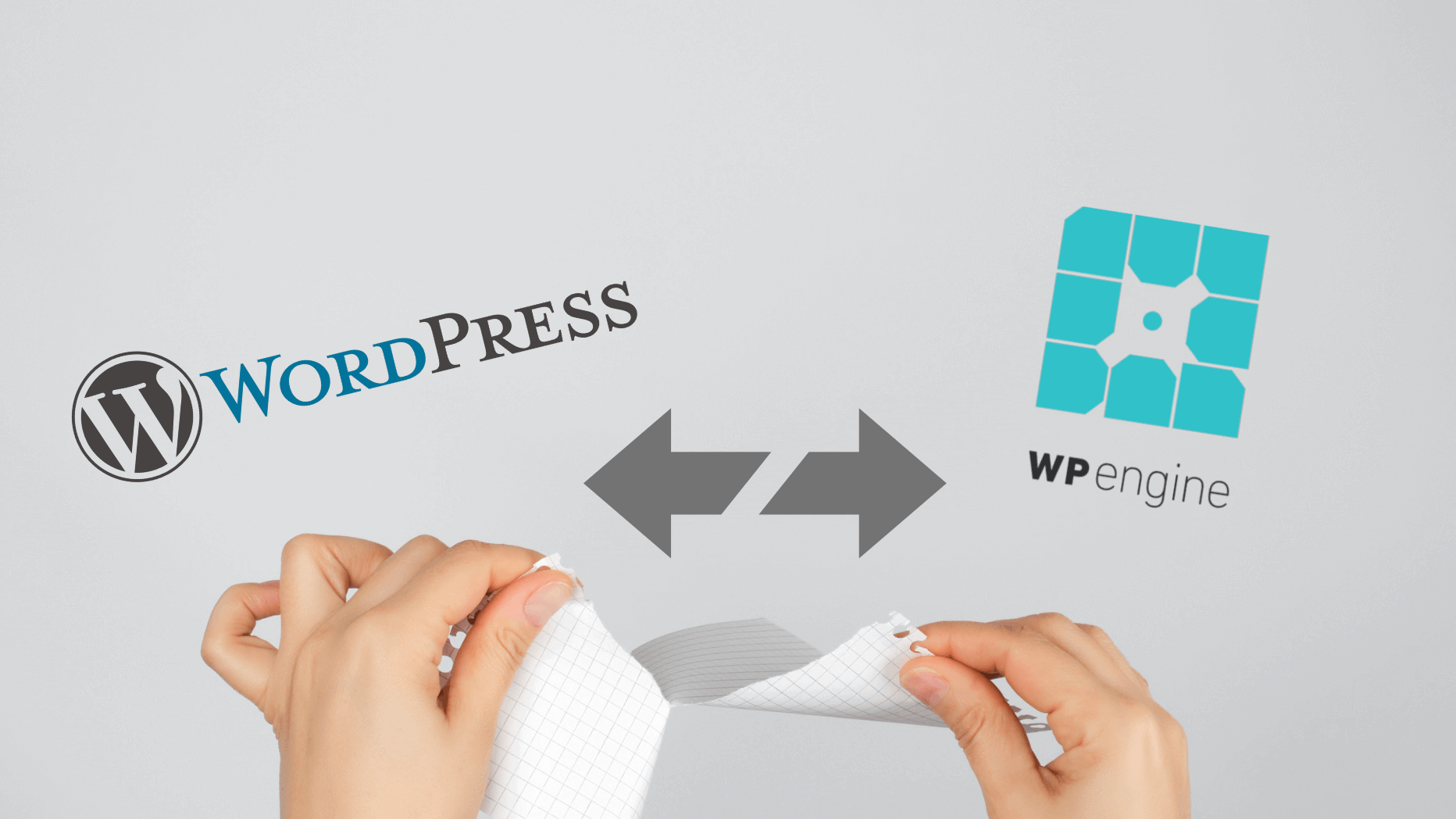If you’ve been following the recent buzz in the WordPress world, you may have come across a bit of a clash between WP Engine and WordPress.org (which is maintained by Automattic). It’s a proper showdown, sparked by trademark disputes, and has left many in the WordPress community feeling rattled.
Recently, Matt Mullenweg, the CEO of Automattic, took to his blog to accuse WP Engine of breaching the WordPress trademark. What followed was a move that shocked many: Automattic blocked WP Engine’s access to crucial WordPress.org resources. Yes, you read that right – WP Engine can no longer tap into key resources like plugins, themes, and even official support forums, leaving businesses and website owners scrambling.
So, what’s the story behind this dispute? And more importantly, what does this mean for WP Engine users?
A Little Background: Understanding WordPress and WP Engine
Before we dissect this feud, let’s first get to grips with the key players: WordPress.org and WP Engine.
What is WordPress.org?
If you’ve ever dabbled in website building, you’ve likely heard of WordPress.org It’s not just any old content management system (CMS) – it’s THE CMS. A whopping 40% of websites globally are built using WordPress, making it a massive player in the web development space.
WordPress.org is all about flexibility and ease of use. Want to create a blog? Check. Need an online store? You got it. Fancy a portfolio site? No problem. And the best part? You don’t need to be a coding genius to get started. With a treasure trove of plugins and themes, you can customise your site to your heart’s content.
Now, while WordPress.org is open-source and free, it’s Automattic – the company co-founded by Matt Mullenweg – that keeps it ticking over. Automattic ensures WordPress remains free and open-source, while WordPress.org serves as the central hub for all your plugins, themes, and resources.
What is WP Engine?
Enter WP Engine – the premium hosting provider that’s all about WordPress. They’re not your average hosting company. WP Engine specialises in managed WordPress hosting, meaning they handle all the technical faff (like performance, security, and updates), so you can focus on running your website. It’s a popular choice for businesses and developers who want reliability, speed, and top-notch security for their WordPress sites.
Here’s where things get interesting, though: WP Engine isn’t affiliated with Automattic. And that little detail? Well, it’s at the heart of the current drama.
The Trademark Dispute: What Went Down?
Matt Mullenweg dropped a bombshell by publicly accusing WP Engine of misusing the WordPress trademark. The gist? WP Engine was allegedly using the WordPress name and brand in a way that might confuse users, making them think that WP Engine is officially tied to WordPress. Spoiler: it’s not.
Now, the use of “WP” (short for WordPress) is common and generally acceptable, but Automattic has strict rules about how the full “WordPress” name is used, especially in commercial ventures. Mullenweg claimed that WP Engine was profiting off the WordPress trademark without proper authorisation, which doesn’t sit well with Automattic’s guidelines.
Things then escalated quickly. Automattic took a hard stance, blocking WP Engine’s access to some of the most vital resources on WordPress.org – plugin and theme repositories and even official support forums. For WP Engine users, this was a big deal. With access blocked, websites could start missing out on critical updates, leading to potential security vulnerabilities for any site being hosted by WP Engine. Talk about throwing a spanner in the works!
Automattic Pulls the Trigger: Blocking WP Engine
Automattic wasn’t just talking tough – they took action. WP Engine’s access to some pretty essential resources on WordPress.org is now blocked, including:
- Access to the WordPress.org plugin and theme repositories;
- The official support forums and
- Key developer resources.
For businesses and developers using WP Engine, this was a bitter pill to swallow. Suddenly, getting the updates and support they needed became a lot trickier, and many found themselves stuck between a rock and a hard place.
So, What’s Next for WP Engine Users?
If you’re one of the many website owners relying on WP Engine’s hosting service, this news might feel like a bit of a nightmare, so here’s what you need to be aware of:
- Delayed Access to Plugins and Themes
The ban means that WP Engine users may face delays in getting access to crucial plugins and theme updates. This can be a big deal for businesses that rely on third-party tools to keep their WordPress sites running smoothly. And let’s face it – no one wants to be stuck with outdated plugins, as it can lead to some serious security vulnerabilities such as hacking threats.
- Potential Site Performance Issues
WP Engine is known for providing high-performance hosting. But, without access to WordPress.org’s official resources, users might find themselves facing more compatibility issues down the line. New WordPress core updates, plugins, and themes might not work as seamlessly as before, leading to possible site performance hiccups.
If you’re looking for uninterrupted access and smooth performance, AdVisible’s hosting solutions and website maintenance packages offer peace of mind by ensuring a secure server, as well as continuous plugin and theme updates to your site.
- Customer Support Challenges
WP Engine has built a solid reputation for providing stellar customer support. But, being cut off from WordPress’s official support forums could limit the help they can offer, especially when it comes to resolving WordPress-specific problems. This could leave some users scrambling to find workarounds or relying on third-party help.
- Legal Tensions and Business Uncertainty
The legal back-and-forth between WP Engine and Automattic could lead to some serious long-term uncertainty. While no official legal action has been taken (yet), WP Engine users might start to wonder what the future holds if things get more heated.
- Increased Security Risks
Without regular updates, websites become more vulnerable to security breaches. This could spell trouble for WP Engine users if they don’t find alternative solutions to keep their sites secure in the meantime. Hackers love exploiting outdated software – and nobody wants to deal with the fallout of a cyberattack.
- Possible Downtime and Glitches
Running a site with outdated plugins and themes isn’t just a security concern – it’s also a performance issue. Bugs, glitches, slow loading times – all of these could become more common if WP Engine users aren’t careful.
- Exploring Alternatives
Many WP Engine users are now starting to consider other hosting providers. There’s no shortage of alternatives, with companies like Kinsta, SiteGround, and Bluehost offering managed WordPress hosting services. These platforms maintain close ties to WordPress, ensuring compliance with trademark guidelines and continued access to resources.
If you’re looking for a streamlined and hassle-free option for your website maintenance, AdVisible offers a comprehensive Care maintenance package that includes:
- Website Hosting and Domain Management ( if required)
- Plugins, Themes and CMS updates
- Security Implementation & Monitoring
- SSL Certificate Renewals
- Daily Website Backups
- 2 hours/ month small content edits
The Bigger Picture: What Does This Mean for the WordPress Ecosystem?
This dispute isn’t just about WP Engine and Automattic – it has the potential to ripple across the entire WordPress community.
- Other Hosting Providers Take Note
With WP Engine under scrutiny, other hosting providers are likely sitting up and taking notice. This conflict could lead to a wave of hosting companies tightening up their branding and making sure they’re following WordPress’s trademark policies to the letter. Nobody wants to end up in WP Engine’s shoes.
- Control Over Open-Source Resources
While WordPress is open-source, Automattic still holds a lot of control over the official resources. This raises questions about the balance of power in the open-source world. Should a company like Automattic have the authority to block access to resources used by millions of people?
There’s a growing debate about how much influence private companies should have over open-source projects. WordPress may be free and open to the public, but if major corporations like Automattic hold the reins on its key resources, does that mean we’re looking at a future where corporate interests dictate the direction of open-source projects? It’s a tough question, and this conflict might just be the tip of the iceberg.
What Should WP Engine Users Do Now?
If you’re using WP Engine, it’s time to be proactive. The ongoing dispute is far from resolved, so here are a few practical steps you can take:
- Keep a Close Eye on Updates
Without direct access to WordPress.org resources, it’s crucial for WP Engine users to be more vigilant about updates. Normally, WordPress updates plugins and themes automatically, but now, you’ll need to take a more hands-on approach. Regularly check for new versions and ensure your site remains up to date. Consider subscribing to third-party services that track WordPress vulnerabilities and security patches, like Patchstack or Sucuri.
- Strengthen Your Security
With limited access to core updates, the security of your website is more important than ever. Consider adding additional layers of security, such as firewall plugins or malware scanners. Regular backups are a must – you can’t afford to lose important data if something goes wrong.
- Consider a Backup Hosting Provider
You may not be ready to jump ship just yet, but it’s worth having a backup plan in place. Consider looking at alternative hosting providers, just in case this situation worsens. Kinsta, SiteGround, and Bluehost are popular choices, especially for WordPress users who want uninterrupted service and easy access to WordPress.org resources.
There are many alternatives out there like Kinsta, SiteGround, and Bluehost, but AdVisible stands out with custom WordPress hosting solutions that guarantee security, performance, and full access to all WordPress resources.
- Engage with WP Engine’s Support
WP Engine’s customer support is well-regarded, and this is a great time to use it. Keep in regular contact with their team, asking for updates on how they plan to mitigate the effects of the ban. Their support may offer guidance on ensuring plugin compatibility or solving issues that arise from limited access to WordPress.org.
- Explore Hosting Alternatives
If the thought of staying with WP Engine makes you uneasy, it’s worth exploring your options. Kinsta, SiteGround, and Bluehost are all highly recommended and adhere closely to WordPress guidelines, ensuring uninterrupted service and access to resources.
The Future of WP Engine and Automattic: What’s Next?
So, what lies ahead? At this point, the future of the WP Engine and Automattic relationship is uncertain. Could they patch things up, or will this battle continue to escalate? Here’s what might happen:
- Reconciliation
There’s always the chance that WP Engine and Automattic could reach some form of agreement. If WP Engine complies with Automattic’s demands, we might see their access to WordPress.org resources restored, resolving the current disruptions for users.
- Continued Legal Dispute
On the other hand, if WP Engine decides to stand firm, the dispute could turn into a protracted legal battle. This would create further uncertainty for WP Engine users, who could face more disruptions and limitations as the conflict drags on.
- Impact on WordPress Trademark Policies
This dispute could prompt Automattic to tighten its trademark policies even further. We might see clearer guidelines for other hosting providers, ensuring they stay on the right side of WordPress’s rules. While this might help prevent similar disputes in the future, it could also put more pressure on hosting companies to follow strict branding and marketing rules.
The Legal Side of Things: What’s at Stake?
Trademark disputes like this one can get messy quickly. Trademark law exists to protect brands and prevent confusion among consumers, ensuring that users know exactly what they’re getting when they choose a product or service. By enforcing its trademark rules, Automattic is attempting to maintain control over how the WordPress name is used commercially.
Lessons Learned: What This Means for Open-Source Projects
The dispute between WP Engine and Automattic is just the latest example of the tension that can arise between open-source communities and commercial interests. WordPress is free and open-source, but when companies start to profit from its name and brand, there are bound to be complications.
This situation raises broader questions about the future of open-source projects. As WordPress continues to grow in popularity, more businesses will seek to profit from its widespread use. Striking a balance between maintaining the open-source ethos and protecting the WordPress brand will be a challenge for Automattic and other stakeholders.
One of the key takeaways from this situation is the importance of community governance. Open-source projects like WordPress thrive when their communities work together for the common good. However, as more private companies seek to leverage these platforms for profit, tensions like the one between WP Engine and Automattic will likely become more common.
Wrapping Up
The conflict between WP Engine and Automattic is more than just a trademark squabble – it’s a reflection of the challenges faced by open-source platforms when commercial interests get involved.
As a WP Engine user, this situation serves as a reminder of the importance of staying informed about changes within the WordPress ecosystem. Whether you stick with WP Engine or decide to explore other hosting options, the key is to remain proactive, keep your site secure, and be prepared for any future developments.
Ultimately, this isn’t just WP Engine’s fight – it’s a reminder of the ever-evolving dynamics in the world of open-source software, where the lines between community-driven projects and corporate interests can sometimes blur. We’ll just have to wait and see how it all plays out. Whatever happens next, it’s safe to say that the WordPress community will be watching closely.
Need Help Navigating Your Hosting Options?
If you’re concerned about the impact of this conflict on your website, now is the perfect time to evaluate your hosting solutions. Contact AdVisible today to discuss reliable alternatives that will keep your site secure and running smoothly. Our team is here to help you find the best hosting solution tailored to your needs.
Summary:
In September 2024, Automattic blocked WP Engine’s access to WordPress.org resources, sparking a significant dispute over trademark usage. Automattic accused WP Engine of improperly using the WordPress name and brand to profit without proper licensing. This resulted in WP Engine being denied access to essential tools like plugins and theme repositories, leaving thousands of WP Engine users at risk of security vulnerabilities and performance issues. The dispute has raised concerns within the WordPress community, highlighting tensions between corporate control and open-source principles and causing uncertainty for WP Engine’s future.





